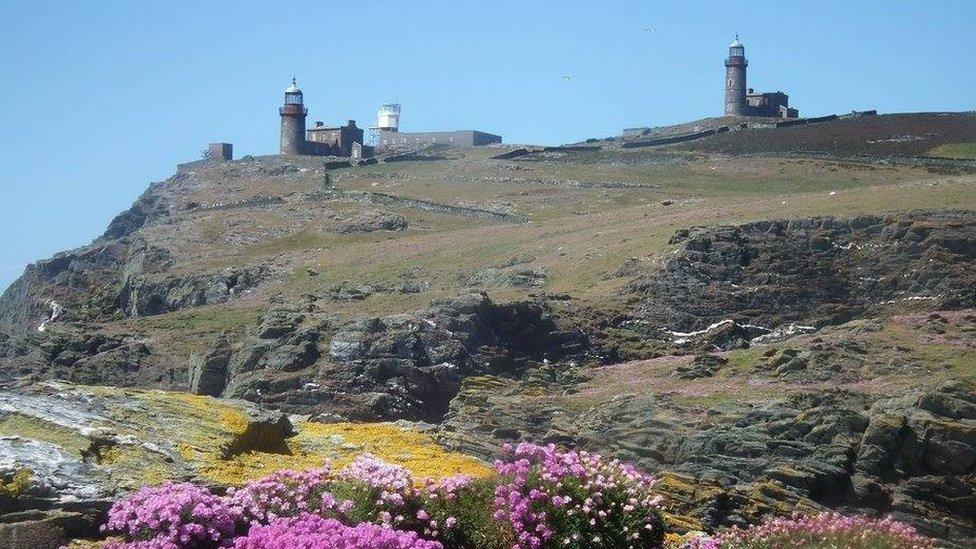The last man standing on the Calf of Man
- Published
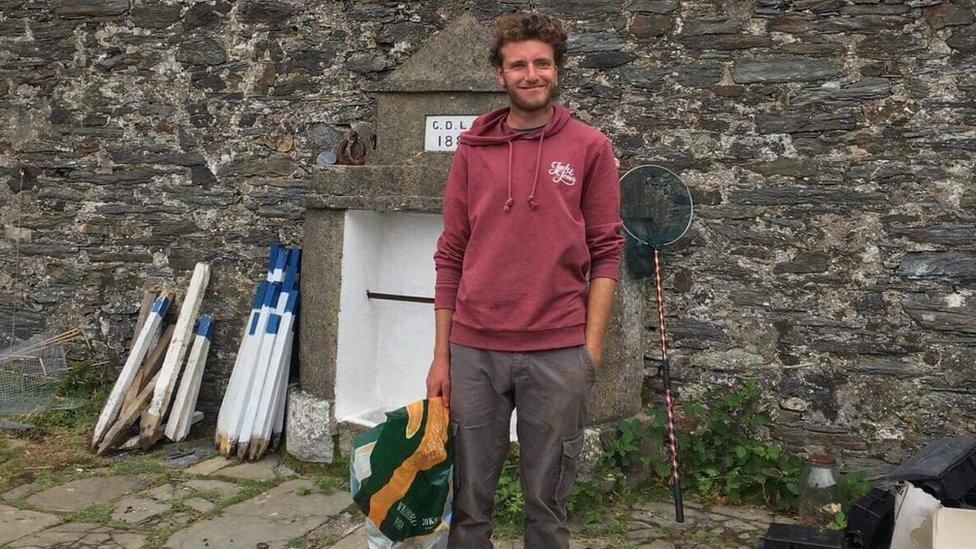
From a young age, Daniel Woollard's dream was to become an estate warden
When a fellow warden slipped and broke his ankle, Daniel Woollard was left in charge of a tiny nature reserve in the Irish Sea. What is it like living on one of the British Isles' most isolated islands?
When the 22-year-old from Essex volunteered to work on the Calf of Man, his family thought he had lost his mind.
Not long after he became the only full-time seasonal resident on the one-mile square spit of land, so did he.
"Most days I'd pull back the curtains and think 'wow... I'm in paradise'," said Daniel. "Other days I'd stare at the walls in my bedroom and be close to packing my bags.
"It was difficult. You can't just pop out to the shop - there isn't one - and you really miss family and friends. But I was in charge of my own island. Not many people can say that."
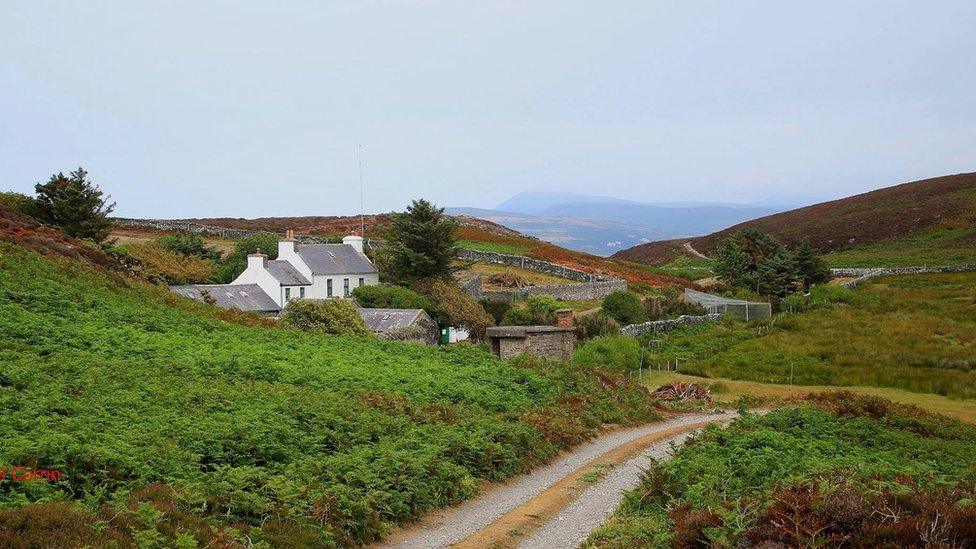
Wardens and visitors share an old farmhouse which dates back to 1878
The Calf of Man is separated from the Isle of Man half a mile from its southern tip by a narrow stretch of water called the Calf Sound.
In stormy weather the ruggedly beautiful and unspoilt land can be cut off for weeks at a time; its isolation such that its only permanent residents are seabirds, Loaghtan sheep and seals.
Since 1959 it has been a bird sanctuary, looked after by two seasonal wardens who undertake ornithological and estate work on behalf of the Manx Wildlife Trust.
When he heard the trust was hiring volunteers to help on the island, Daniel jumped at the opportunity.
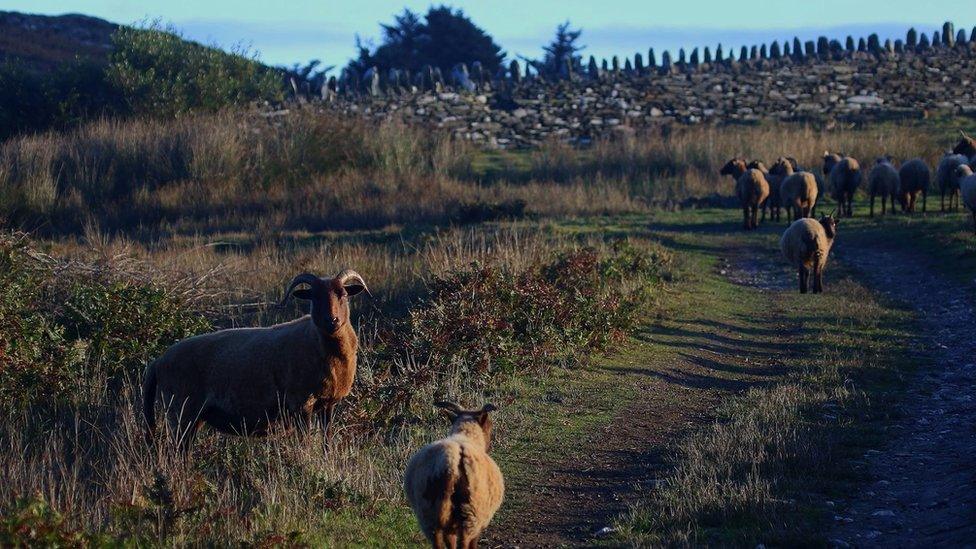
The island's only permanent residents are seabirds, Loaghtan sheep and seals
He had been looking for a full-time job after completing a diploma in countryside management and spending the past four years gaining conservation experience around the UK.
"It was while studying I realised I wanted to do this for the rest my life," said Daniel. "I wanted to become a warden and look after a reserve and manage it for the benefit of wildlife.
"It was this dream that led me to the Calf of Man."
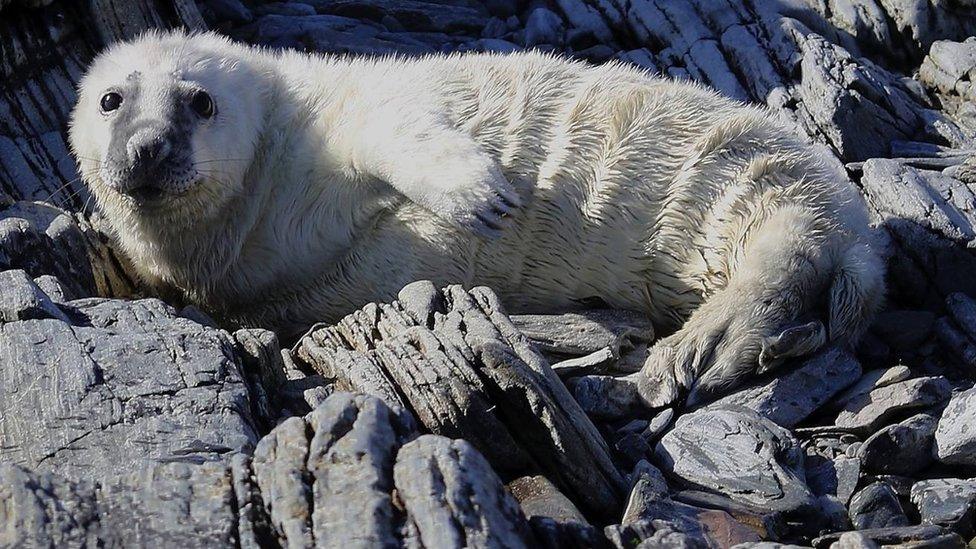
Around 60 seal pups were born on the island this year
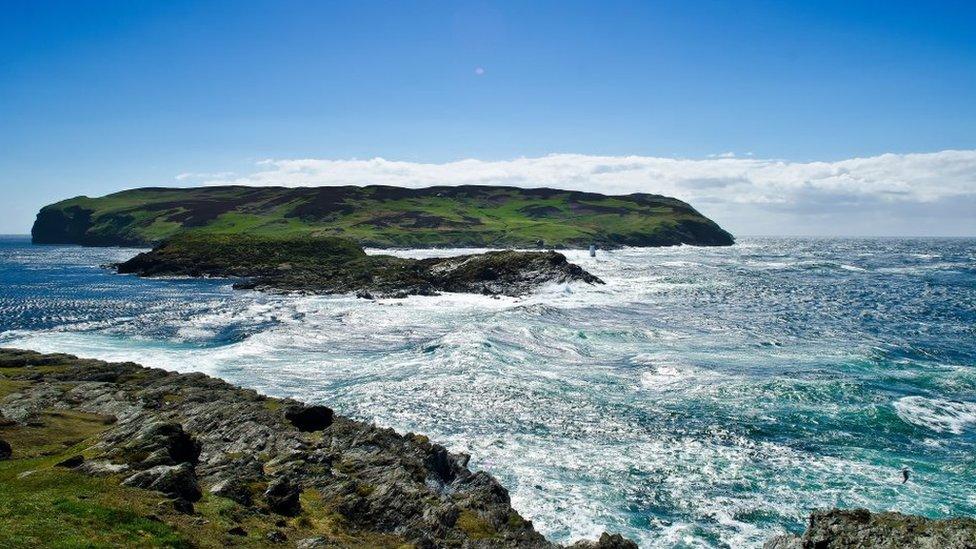
The island is separated from the Isle of Man by a stretch of water called the Calf Sound
The Calf's wardens live permanently in its sole farmhouse between March and November.
They are joined by a trickle of volunteers, who stay for anything from a day up to a few weeks at a time, who help with ongoing projects to eradicate rats and attract ground-nesting puffins.
"I knew it was going to be lonely and difficult, but I didn't care," said Daniel. "Most of my friends have normal jobs or are at university, so they all thought I was a bit crazy when I said I was off to live on an island for eight months.
"And for my mum - for me to be away for [that long] - was a big deal for both of us."
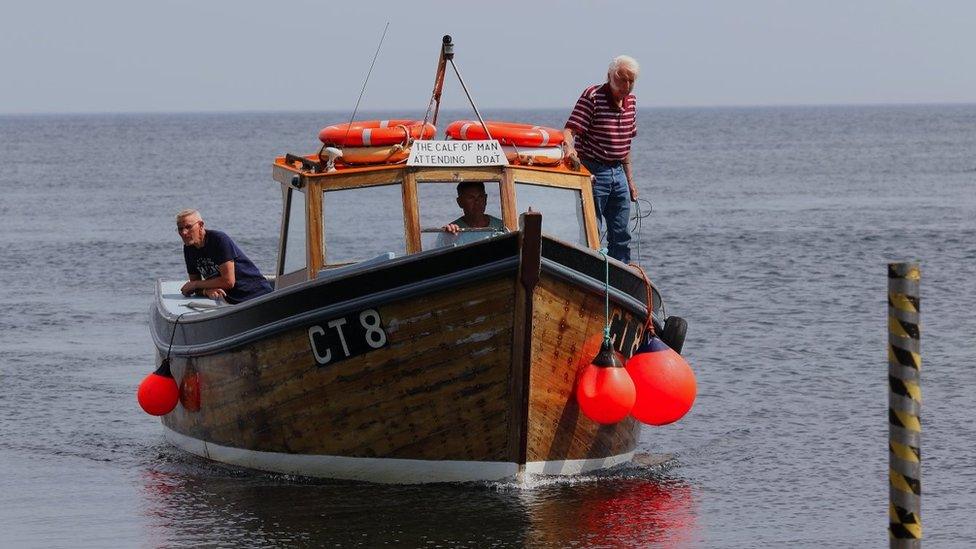
It is only possible to reach the island by boat, from Port Erin and Port St Mary
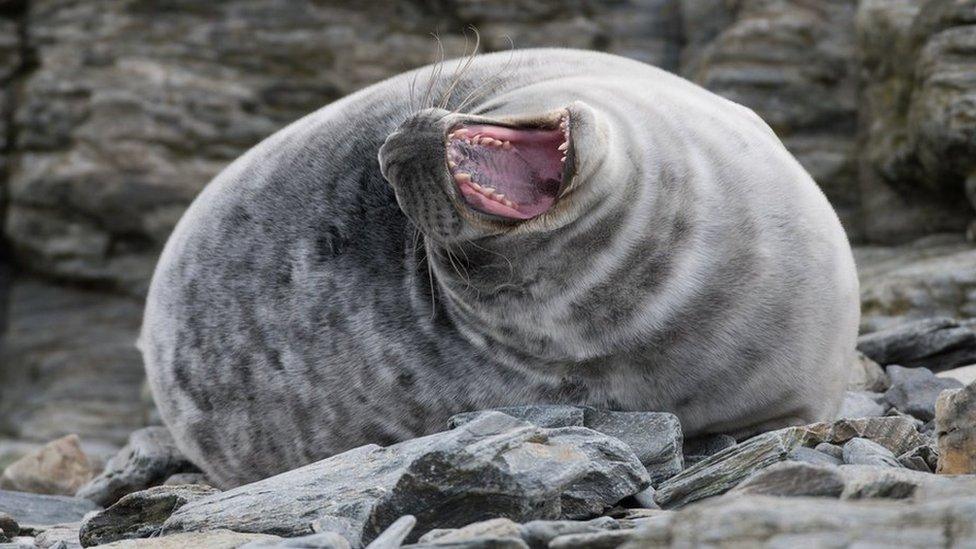
A large colony of seals are ever-present on the rocks
Life on the island is basic - showers are rationed to once a week to save water and a generator is powered up just twice a day.
There is no central heating, just two wood-burning stoves, and food arrives weekly - when weather allows - on a small fishing boat with other vital supplies.
"The wildlife, the walks, the views... we were surrounded and immersed in nature," said Daniel, who was 21 when he arrived on the island.

You might also be interested in

"I'd swim in the sea, have BBQs, lovely walks, and the volunteers were amazing. Of course, sometimes, I did feel like it was all too much and I wanted off the island but that was always fleeting."
Five months into his volunteering role, Daniel fulfilled his dream of becoming an estate warden earlier than expected when his predecessor left for a job on Skomer, off the coast of Pembrokeshire.
Just four weeks later, the ornithology warden slipped and broke his ankle, leaving Daniel in charge of the whole island.
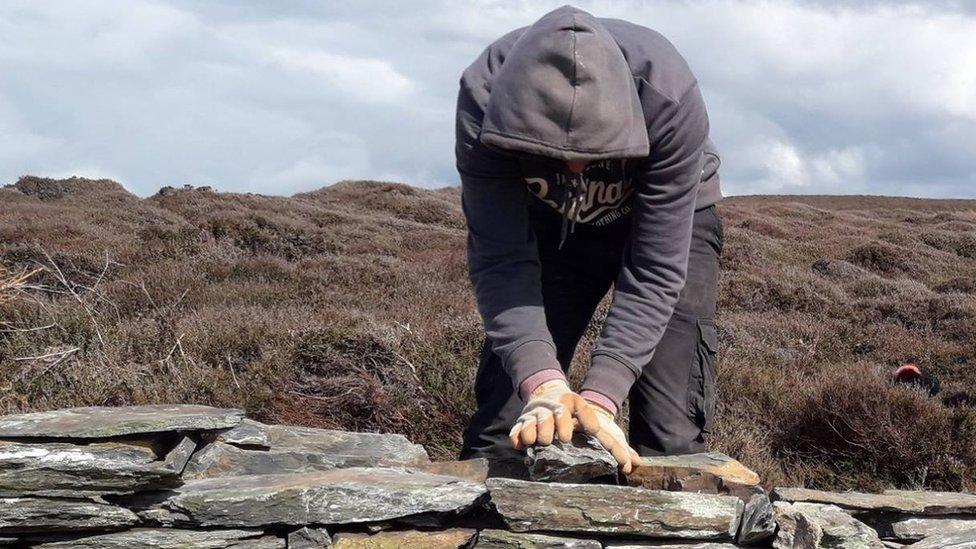
Daniel said he learned invaluable skills including how to build dry-stone walls
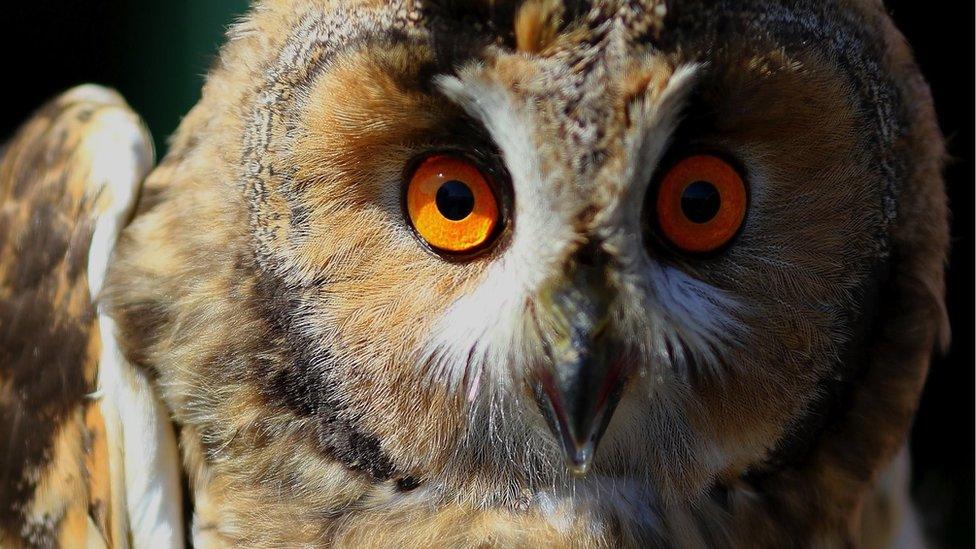
The island has been a bird observatory since 1959
As well as the estate work, his new responsibilities included shepherding, bird ringing, and monitoring seal, rat, and moth populations.
"I was the last man standing. I had no option but to step up again," he said.
"It was a strange feeling being the only permanent resident on an island but I think I took it in my stride."
Daniel said he learned invaluable skills, including how to build dry-stone walls and coppice willow.
But it was the wildlife that was the real highlight - allowing him to tick the red-breasted flycatcher, yellow-browed warbler and leach's petrel off his bird-spotting bucket list.
"Everywhere you went there was a seal pup. I had never seen one before and there were about 60 born this year.
"I watched some from birth until they swam out to sea, it was so special to see."
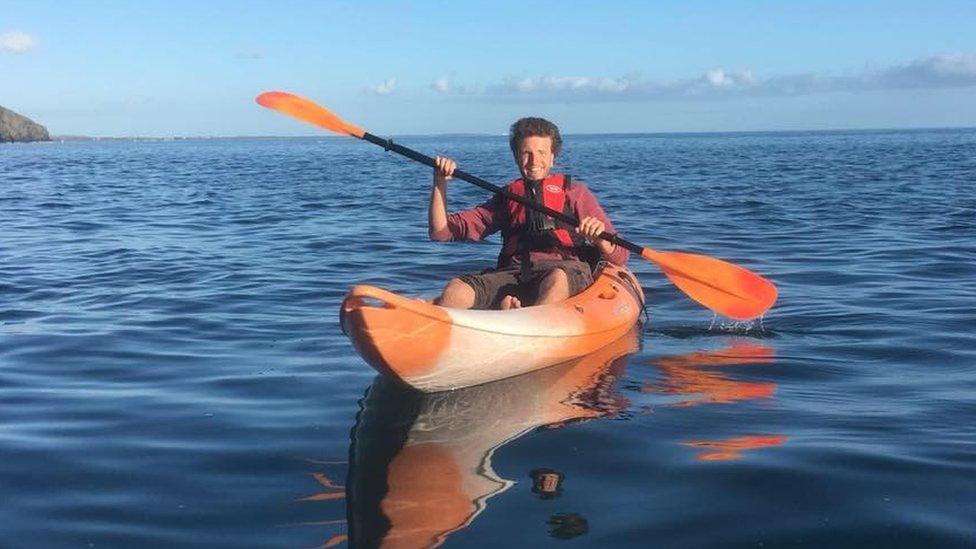
Daniel said there were many days when he felt he was "in paradise"
Back at his parents' semi-detached house in Southend-on-Sea, the former warden is readjusting to city life.
He said returning to the noise of the busy mainland was a "shock to the system" and having to remember to carry a wallet was "strange".
"When you get back from the island, you instantly get back into normal life; TV, shops, pub. [It's like the last] eight months never happened. I'm looking out the window and there are cars constantly driving past, other houses, and other buildings.
"On the Calf I was more used to waking up and seeing fluffy seal pups than parked cars and I know which I prefer."
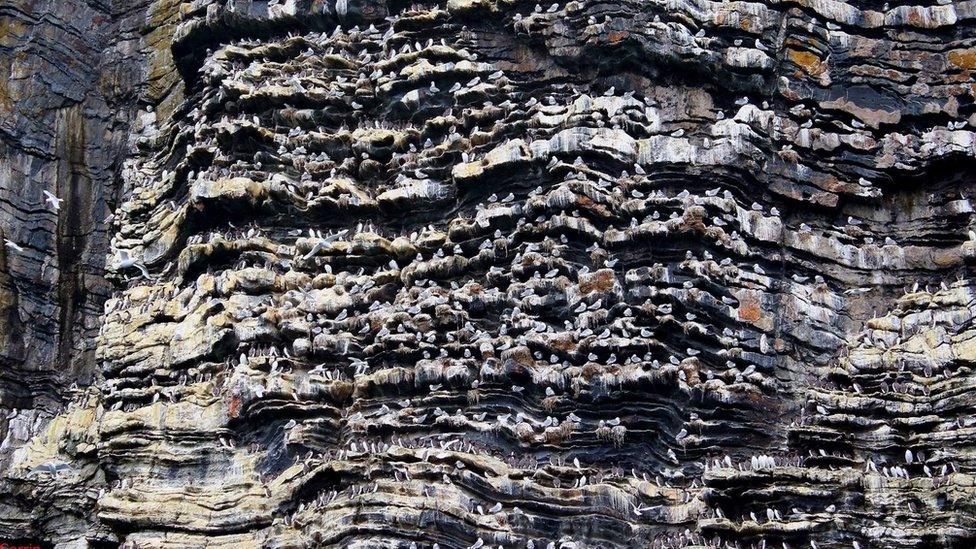
Around 40 species of birds breed on the island every year
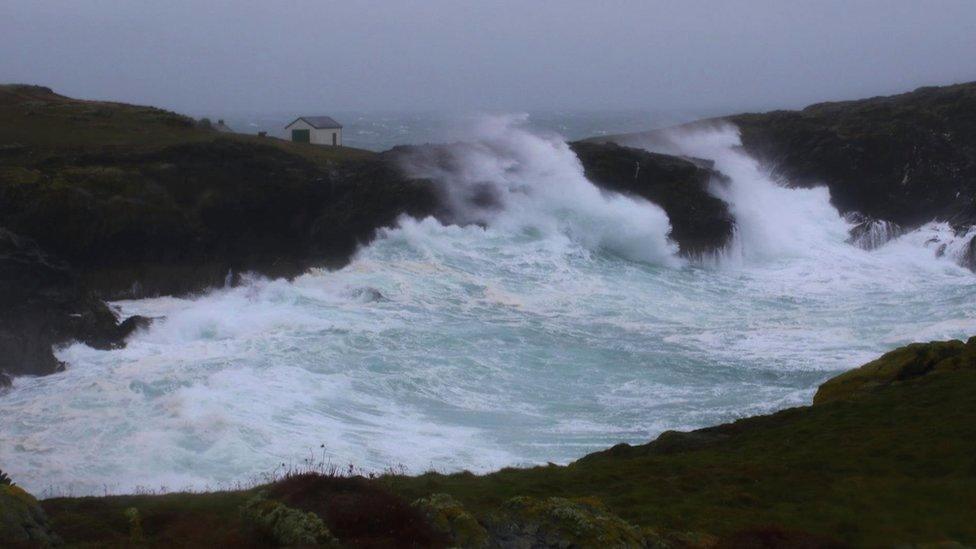
In stormy weather the island can be cut off for weeks at a time
Next year's wardens will arrive on the island in March.
The Manx Wildlife Trust said the jobs were a "unique opportunity to work and live in one of the most remote and beautiful locations in Britain".
"It is an adventure for those chosen and a venture away from our connected lives," added spokesman Tim Graham.
Daniel hopes to return to the Calf and has reapplied for the job.
"I wanted to work on an island more for myself than for my CV - so in years to come I can say, 'I've lived on an island for eight months'. And if they wanted to take me on [again] it would be brilliant. I would love to go back."
.
- Published5 November 2016
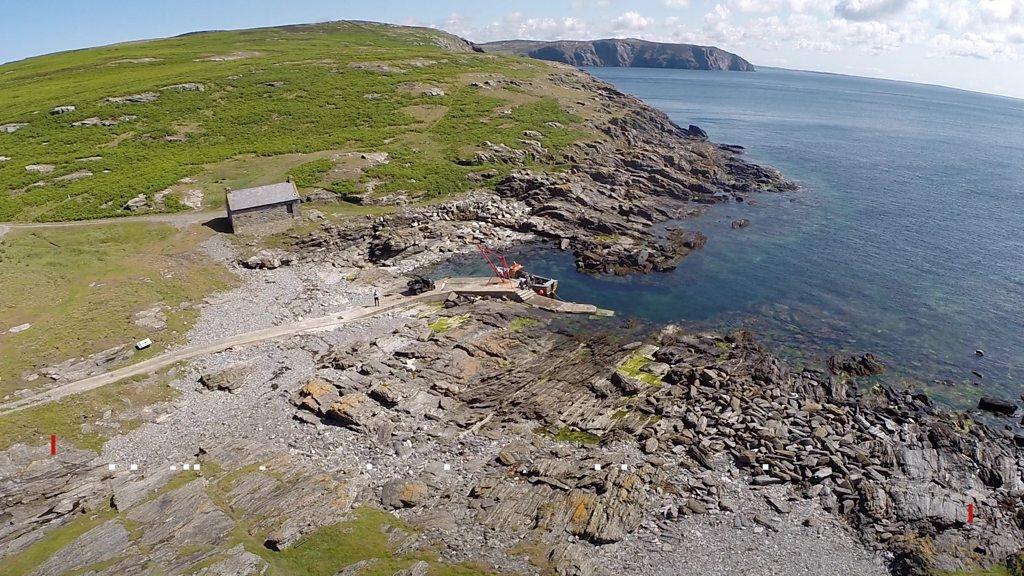
- Published22 September 2017
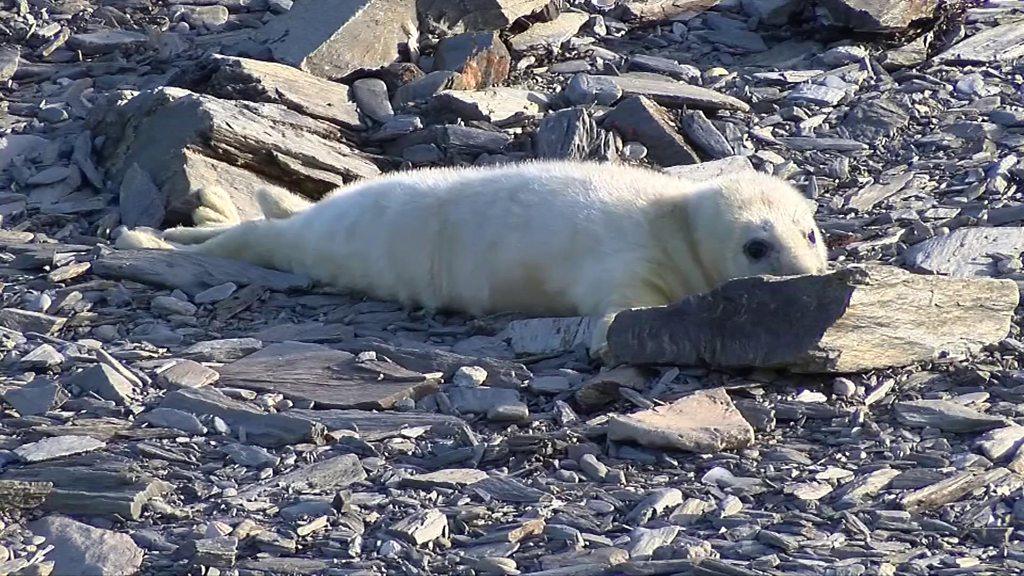
- Published20 September 2018
